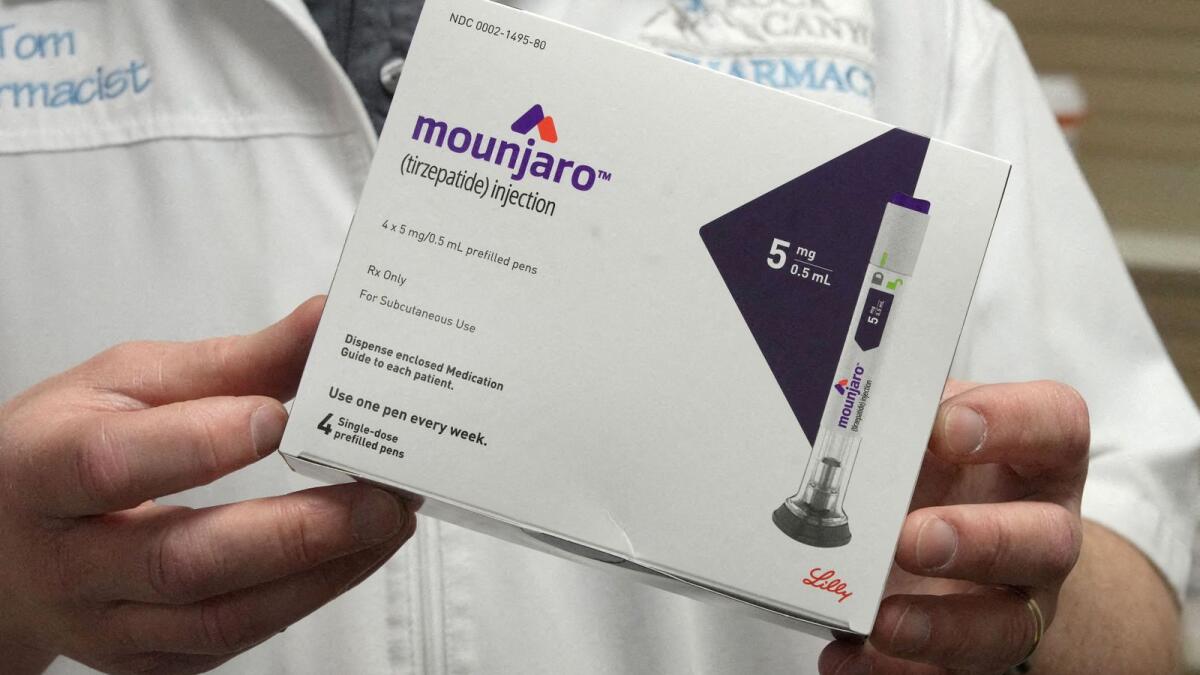Eli Lilly’s weight loss drug Zepbound, also known as tirzepatide, has shown promising results in reducing the risk of hospitalization, death, and other outcomes for obese adults with heart failure. The drug was found to reduce the risk of heart failure urgent visits or hospitalizations, oral diuretic intensification, or cardiovascular death by 38 percent compared to a placebo in a recent trial involving 731 patients across 10 countries. This is significant as heart failure with preserved ejection fraction, a common type of heart failure, affects nearly half of all heart failure cases and is often associated with obesity.
The study also demonstrated that tirzepatide significantly improved heart failure symptoms and physical limitations. Heart failure is a condition where the heart is unable to pump enough blood to meet the body’s needs, leading to symptoms such as fatigue, shortness of breath, reduced ability to exercise, and swelling of extremities. Patients on tirzepatide were given weekly injections of the highest dose they could tolerate, up to 15 milligrams, and were followed for a median of two years. The drug resulted in a 15.7 percent weight loss in the combined population of people with and without type 2 diabetes, compared to 2.2 percent for the placebo, with non-diabetes patients experiencing a 13.9 percent weight loss.
Zepbound, which is also marketed under the brand name Mounjaro for type 2 diabetes, belongs to a class of drugs designed to mimic the action of the GLP-1 hormone. This hormone helps regulate blood sugar, slow digestion, and decrease appetite. Common side effects reported by trial patients receiving tirzepatide included diarrhea, nausea, constipation, and vomiting. Eli Lilly plans to submit the results of the heart failure trial to the US Food and Drug Administration and other regulatory agencies later this year. The findings will also be presented at a medical meeting and submitted to a peer-reviewed journal.
The positive results of Eli Lilly’s tirzepatide trial come at a time when other pharmaceutical companies are also reporting success with GLP-1 weight loss drugs in reducing heart failure symptoms. Novo Nordisk, for example, has reported data showing that its GLP-1 weight loss drug Wegovy also reduces heart failure symptoms. This growing body of evidence supports the potential benefits of GLP-1 drugs in helping patients with heart failure, particularly those who are obese and at a higher risk for complications.
Overall, the findings of Eli Lilly’s trial with tirzepatide showcase the potential of this weight loss drug in improving outcomes for obese adults with heart failure. By reducing the risk of hospitalization, death, and other critical events, tirzepatide could offer hope to patients suffering from heart failure with preserved ejection fraction. With the plans to submit the results for regulatory approval and further dissemination to the medical community, tirzepatide may soon become a valuable treatment option for individuals struggling with obesity-related heart failure. As the pharmaceutical industry continues to advance in developing innovative therapies, patients with heart failure can look forward to more effective and targeted treatments in the future.










